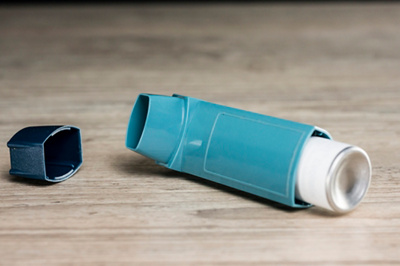Roughly one in five of South Africa’s children live with asthma, but with the right treatment and planning, there’s no reason they can’t enjoy the same activities as their peers.
Have an asthma plan and teach your child about It
A vital aspect of asthma awareness is having a step-by-step asthma plan, says Raeesah Boomgaard, ER24 ALS and Johannesburg West Branch Manager. This plan describes what to do during an asthma attack and how to manage daily symptoms.
Basic tools to manage asthma
Apart from taking their prescribed medicine regularly, your child’s inhaler or pump is the crucial tool for managing their asthma, delivering a direct shot of steroids into the lungs to reduce tightness during an attack. “It’s important that the patient or someone on the scene monitors their condition during the process,” says Boomgaard. If the condition doesn’t improve, it’s time to use the next tool, which is a nebuliser. If there isn’t a nebuliser nearby, dial 084 124 for assistance from a trained EMS practitioner.
Educate others
Make sure other caregivers, teachers, and family members know about your child's asthma and are familiar with the action plan. This ensures everyone is prepared to help if needed. When they’re old enough, your child must let adults around them know that they have asthma, what their plan is, the contact numbers of a parent/guardian, and to call ER24 on 084 124 if the attack worsens.
Keep the child calm
When someone is having an asthma attack, it’s vital to keep them calm. Boomgaard explains that anxiety worsens an attack, and simply calming down the patient can help to overcome the asthma attack or keep them more stable until help arrives.
What will happen when medical help arrives?
Boomgaard says that as a paramedic, her first action is always to keep the patient calm. She will then ask about the patient’s history of asthma attacks, and whether they have ever ended up in hospital before. The supervising adult should be told this information beforehand. “This gives us an idea of how bad a patient’s attack can be and allows us to prepare appropriately,” Boomgard explains.
Even when treating asthma patients for other conditions, she says it’s important to be prepared for asthma-related reactions. “We always keep the possibility of an asthma attack in the back of our minds, so if it starts, we can treat it quickly.”
Five myths about asthma
Myth: Asthma patients can’t take part in sports.
Truth: People with asthma can do sports; they just need to keep an eye out for symptoms of an asthma attack.
Myth: All asthma is the same.
Truth: The basic cause of an asthma attack is the same, but what triggers it can differ. It might be due to genetics, a response to weather changes, physical activity, or exposure to irritants. Once you identify the triggers, try to minimise exposure.
Myth: All children outgrow asthma.
Truth: Some children will still have asthma when they’re older. Even if you didn’t have asthma as a child, the condition can also develop later in life.
Myth: Chronic asthma medication stops working after your body develops a tolerance for it.
Truth: The human body gets used to many types of medicines but take your child for check-ups with your healthcare professional to ensure their medicine is still appropriate.
Myth: Asthma medication is addictive.
Truth: Asthma medicines do not have addictive properties.
Is your child’s school equipped to deal with medical issues? ER24’s Primary and Secondary Scholar Care programmes offer dedicated services to meet the emergency and safety needs of pre-primary schools, primary schools, and their learners. Find out more here: https://www.er24.co.za/en/corporate/offering-for-institutions.html

